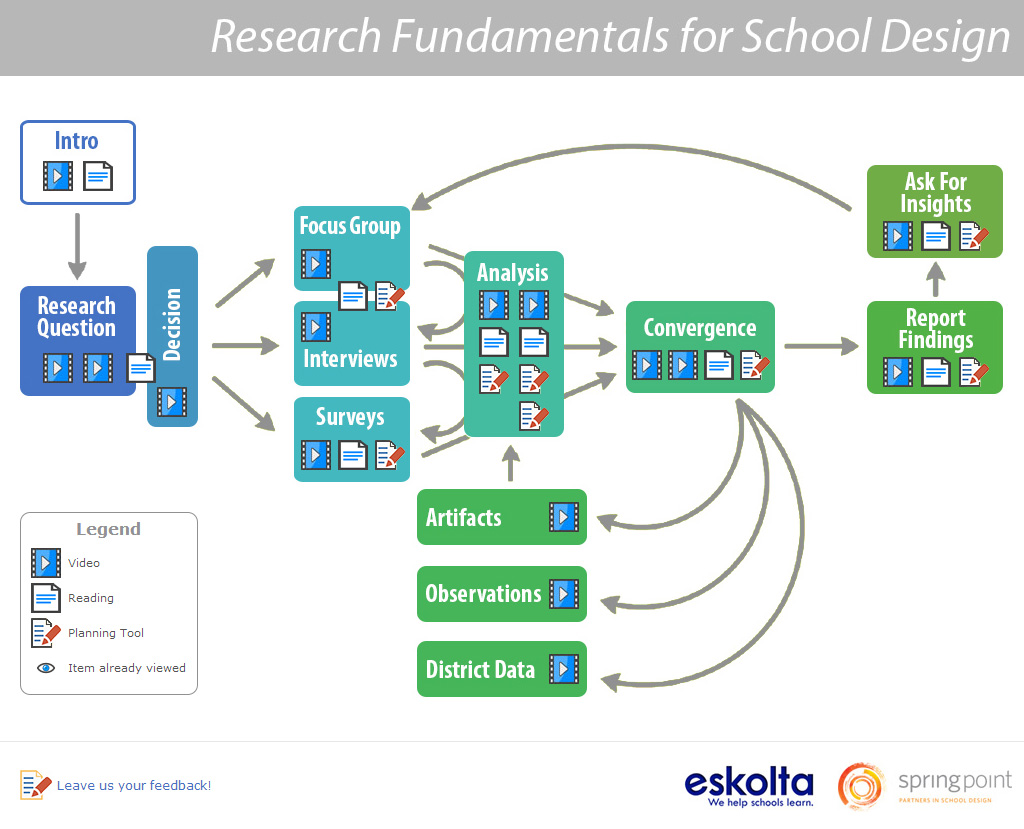What We Do: Design Projects >> Data-Guided Leadership
Using Research for Effective School Design
Designing a new school is a challenging process. School districts and aspiring school leaders that embark on such a challenge need more than just their own experience and existing research to guide them. They also need to be able to identify and draw upon the perspectives of the students, families, and communities that they will be serving. By engaging in community-based research, school designers can root new schools in the needs and experience of the people they are designed to serve. In 2013, Springpoint School Design Partners turned to Eskolta to help them create a course and guidance for school leaders to do just that.
Springpoint was founded in 2013, working in conjunction with the Carnegie Corporation of New York, a foundation that has invested heavily in rethinking school design and established a set of ten core design principles for schools. In 2013–14, Springpoint began working in earnest with school districts in New York, Cleveland, Denver, and Philadelphia to start new, innovative schools. As they embarked upon this effort, Springpoint asked Eskolta to develop guidance for school designers on how they can effectively collect and use data to create schools that are responsive to community needs. The course, titled Research Fundamentals for School Design, is based on Eskolta’s methods and consists of several modules, each of which is dedicated to a step in data collection, analysis, presentation, and use. Threaded throughout the course is the theme of dedication to iterative design: testing ideas and using the results to arrive at a system adapted to the real needs of students, families, educators, and the community.
In the School District of Philadelphia, a prospective school leader used the course to help him think about how to collect data, design surveys, and run focus groups as he prepared to launch a new Common Core– aligned school in 2014. Complementing the focus on data, Eskolta School Development Consultant Tom McKenna helped leaders create timelines and set expectations for progress. Eskolta’s lead researcher Amanda Crowell, who consulted directly with leaders through this process, reflected on the project: “I think Eskolta’s support is helping to smooth the way for these districts as they try to learn a set of new skills while also launching a school.” These efforts are intended to also help the District of Philadelphia to achieve its second aim of using evidence from these two schools to establish basic practices for research, development, and design of high-performing secondary schools in the long term.


